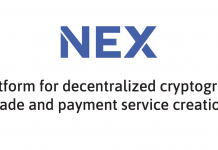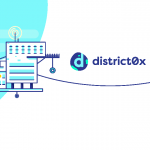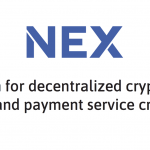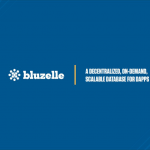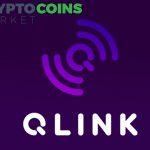PROJECT OVERVIEW.
ICO date: 7/11/2017.
BitClave is aiming to design an advertisement platform that is consumer centric so that advertisers can track their performance based on ‘results’ and not based on views or clicks.
They plan to launch the world’s first decentralized search engine with the goal of cutting out the middleman in the online advertising industry. Instead of paying any “middlemen”, companies automatically make personalized offers directly to consumers who have opted in for the service.
The “intermediaries” referred to are the various advertising networks, including AdWords, which separate marketers from consumers. In the proposed system, companies will be able to find anyone who owns a dog, for instance, who is in the system, and offer them a product or service in the form of advertising.
BACKGROUND.
The advertising businesses which are running through online must pay a considerable amount of money to the ‘middleman’ for reaching their target audiences. Also, the generated traffic too is not guaranteed as genuine.
Offline advertising also has an extremely lower conversion charges due to the various promotional activities performed by the appropriate advertisers.
This led the consumers to pay more for the less valuable things and the companies to pay more for the products. Thus as a whole, the above mentioned negative impacts of both online and offline businesses result in huge loss for both the companies and the consumers.
BitClave claims to have a solution in this 550 Billion ads market industry.
HOW IT WORKS.
BitClave’s solution is called BASE, or BitClave Active Search Ecosystem. It’s a decentralized system that connects consumers directly with businesses – eliminating the need for a middleman like Google AdWords. That means consumers and advertisers receive real value from every relevant search query in the BASE ecosystem.
Instead of a middleman, BitClave uses cryptography and activity ledgers to create smart contracts. Smart contracts facilitate the combination of customer data preferences, lead-generating analytics, and flexible promotions programs.
Users’ personal data is securely stored on the un-hackable blockchain. The types of data that can be collected and stored in BASE are many, including physical information like building access, Wi-Fi connections, GPS information, and more. All of this data can be useful to advertisers trying to sell products, especially regional products.
Through the use of cryptography, actual user personal information can be selectively protected and shared by the user, and the advertisers nor BitClave itself do not need actual personal details (name or e-mail address, for instance) to verify whether an offer actually converted or not.
BitClave state in their Whitepaper that they may introduce more activities in the future but initially there’ll be these options:
- REQUEST: Customer facing software can publish a shopping preference, item they’re interested in or a personal preference which will give businesses data on the goods or services they’re likely to be interested in.
- OFFER: This will allow businesses to post short term offers, they can do this publicly or use the data entered in the REQUESTs to target their request at users more likely to be interested in their OFFER.
- VIEW: This will be used to verify that a customer has viewed an offer, once the retailer verifies this the user will be rewarded with CAT tokens.
- BUY: This will allow users to show that they have completed a purchase from one of the businesses on the platform.
- SELL: This will allow businesses to show that a sale has been made.
USERS.
Consumers.
For consumers, BitClave’s BASE is a search app that pays money. The example on the BitClave website discusses how “Ben” is looking for a new car. He searches for the car, but finds tons of irrelevant links and advertisements on conventional search engines.
Using BASE, he finds personalized offers from car dealers, each of which is competing with each other to offer the best deal. For each offer, dealers are ready to pay Ben anywhere from $5 to $50. So just by searching for a new car, Ben can make up to $250 – even if he doesn’t buy a car.
The business pays Ben directly. There’s no middleman – like Google AdWords – involved in the process.
Businesses.
Why would businesses benefit from paying a large amount of money to consumers just for searching? Businesses can benefit from BASE by creating smart contracts. Smart contracts execute when members of the target audience perform searches for relevant information. User provenance is guaranteed by the ledger.
For a practical example, BitClave returns to the auto dealership example. Auto dealers can create a promotion targeted at consumers who own a 2 year old car, for example. They can fine-tune their search even further by selecting consumers who prefer German cars, have an income higher than $100,000, and live within 100 miles of the dealership. In other words, dealerships can find their perfect customer and give that customer their best offer.
Experts.
BitClave offers benefits for one more group of people. BitClave calls these people “experts”. They’re the advertising specialists who can help businesses achieve better advertising results online.
For a small fee, these experts can create smart contracts for businesses and build personalized experience solutions in different verticals.
CAT TOKEN USES.
- Advertisers will use the token to pay for listing on the platform and access to the BASE (along with later products BitClave will develop on the ecosystem).
- Users can earn CATs by creating profile details, contributing preference and interest data, and posting recommendations for retailers or providers who have not yet joined the system (potentially earning tokens and reputation from other users in the process) similar to a recommendation or referral system.
- Users are paid in the form of CAT for viewing ads relevant to their specific demographic.
ROADMAP.
SIMILAR PROJECTS.
Presearch.
BitClave and Presearch are both pursuing similar goals which are ultimately to reward users for significant amount of time and effort they spend browsing the internet, to put it simply. However, the platforms are at their core very different.
The Presearch team is focused on developing a decentralized search engine; BitClave is specialized in search-based advertising, with a strong focus on eCommerce and B2C relationships. Their objective is to give users control of their data, letting them decide who can access it, rather than the highest bidder.
Presearch is a search layer that operates on top of preexisting engines, such as Google, and runs in parallel to user activities on those platforms. In contrast, BitClave is an independent ecosystem that will ultimately provide such highly relevant, and rewarding, search results that it will supersede the need for users to conduct inquiries outside of the platform.
With BitClave, searching becomes more efficient for users. BitClave helps users separate the signal from the noise, resulting in less time and effort required to find exactly what they’re looking for. This creates a personalized browsing experience, with advertisements and offers tailored for the individual based on their actual interests, rather than the best guesses of those who pay third party platforms the most.
The token awarding system is also fundamentally different; whereas Presearch awards tokens based on platform use and referrals, BitClave awards are based on users opting in to advertisements by relevant businesses, essentially rewarding the user for engaging with an ad and rewarding the business with a new customer.
As a user, you’re paid for interactions with offers that you want, based on products and services you care about, and can earn tokens redeemable for making purchases instead instead of earning pennies for watching irrelevant ads. BitClave rewards users for their data, instead of users selling their information to advertising network middlemen every time they conduct a search under the current system. And, the more important your data is for advertisers, if you fit into a key demographic for example, the higher your potential earnings.



